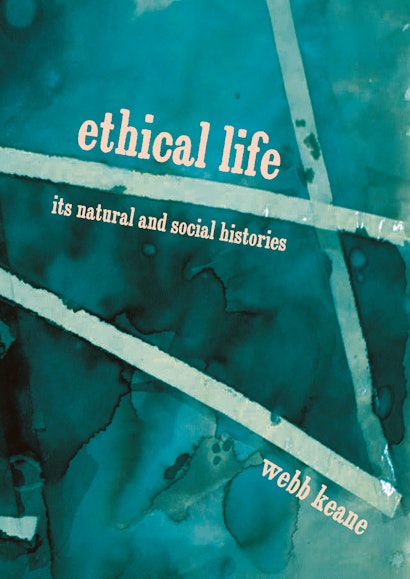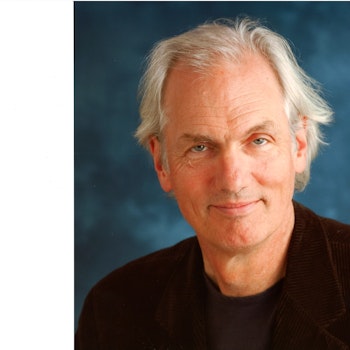The human propensity to take an ethical stance toward oneself and others is found in every known society, yet we also know that values taken for granted in one society can contradict those in another. Does ethical life arise from human nature itself? Is it a universal human trait? Or is it a product of one’s cultural and historical context? Webb Keane offers a new approach to the empirical study of ethical life that reconciles these questions, showing how ethics arise at the intersection of human biology and social dynamics.
Drawing on the latest findings in psychology, conversational interaction, ethnography, and history, Ethical Life takes readers from inner city America to Samoa and the Inuit Arctic to reveal how we are creatures of our biology as well as our history—and how our ethical lives are contingent on both. Keane looks at Melanesian theories of mind and the training of Buddhist monks, and discusses important social causes such as the British abolitionist movement and American feminism. He explores how styles of child rearing, notions of the person, and moral codes in different communities elaborate on certain basic human tendencies while suppressing or ignoring others.
Certain to provoke debate, Ethical Life presents an entirely new way of thinking about ethics, morals, and the factors that shape them.
"A book that masterfully interweaves insights from philosophy and the natural and social sciences."—Max Hayward, Times Literary Supplement
"This far-reaching discussion of ethical life and moral systems by anthropologist Keane aspires to combine the traditions of what he calls ‘natural history' with those of ‘social history'. . . . This rich and original study will certainly fascinate anyone with an intellectual interest in morality and ethics."—Choice
"Ethical Life is an extraordinary book. It is broad in its scope, careful and reflective in its elaboration of a theoretical vocabulary, it deals with basic issues for the humanities and the social sciences and manages to produce genuine and thought-provoking new insights."—Ethical Theory and Moral Practice
"An extraordinary achievement that deserves a wide readership way beyond anthropology. In short, Keane has given social scientists a theoretically informed way in which to approach ethics as an empirical phenomenon and he has provided scholars usually working within moral philosophy new challenges with his invitation to think of ethics as socially engrained—all the way down."—Klaus Hoeyer, Ethical Theory and Moral Practice
"Will surely stimulate a lot of research on moral systems and ethical practice."—Heikki Wilenius, Suomen Antropologi
"A treasure trove of richly stimulating ideas."—Kwame Anthony Appiah, author of Experiments in Ethics
"At last, an account of ethical life that is as rich and many layered as ethical life itself. Webb Keane takes us from its instinctual beginnings, through the elaboration of moral notions in everyday interaction, to the broader field of conscious ethical change in history. Every chapter is full of reflection-provoking insights, based on extensive research in a number of fields. This book is a game changer."—Charles Taylor, author of A Secular Age
"Webb Keane has provided us with an exceptionally broad and nuanced account of the natural and social histories of human ethical conduct. Unlike almost any other, the account is balanced between both cultural universals and cultural variability in the creation of human ethical life. This book is a must-read for everyone interested in the evolution of human sociality."—Michael Tomasello, author of A Natural History of Human Morality
"Ethical Life is a brilliant synthesis of the major issues in moral theory and the anthropology of ethics. Keane masterfully provides us with a model of interdisciplinary engagement—insightful, measured, world aware, and sensitive to the different shades of argument he engages. This book is an outstanding contribution to our understanding of our lives as ethical beings."—Veena Das, author of Affliction: Health, Disease, Poverty
"With Ethical Life, Webb Keane confirms his place as one of anthropology's most gifted thinkers. The scope of this book is phenomenal, ranging over a host of disciplines and debates with erudition. Ethical Life provides a new model for what bold anthropology can achieve, bringing us back to the difficult question of how to understand the natural and social histories of humankind—a question that many of us have simply been too timid to ask."—Matthew Engelke, London School of Economics
"This ambitious book synthesizes perspectives from anthropology, psychology, philosophy, and history, putting forward with impressive force and clarity a distinctive and persuasive argument. Ethical Life is a work of considerable scholarship and original thought."—James Laidlaw, author of The Subject of Virtue: An Anthropology of Ethics and Freedom


